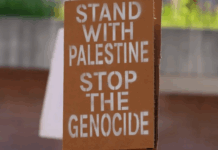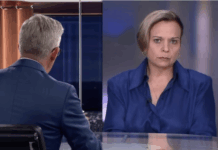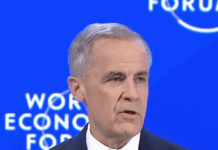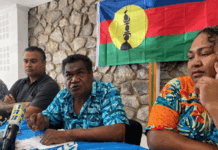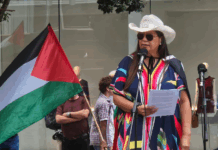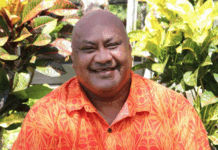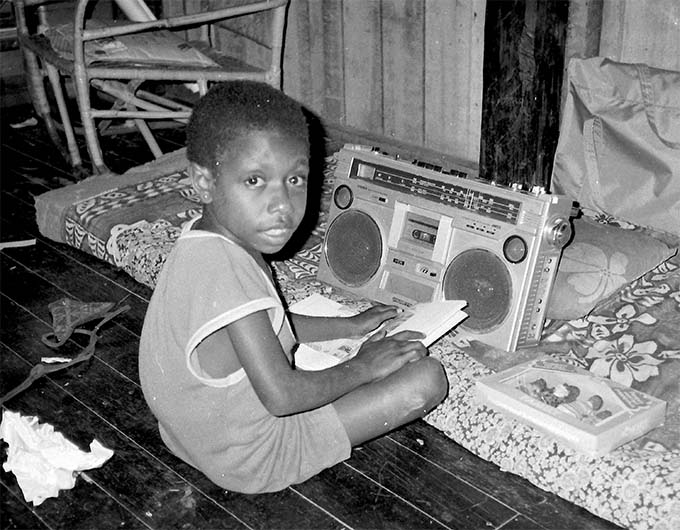
Submissions to the Australian Review of Broadcasting Services to Asia-Pacific closed yesterday. Development worker Elizabeth Cox made this public submission to the review panel and provides a local grassroots perspective.
I am a citizen of Australia who has spent 40 years living and working in Papua New Guinea. I have worked mainly in rural areas.
I was based in Angoram District of the East Sepik Province for 20 years, and I have for all of these decades collaborated with rural teachers, village leaders, including women and youth leaders, community-based Village Health Volunteers.
(After my 20 years in Angoram, I spent a further 20 years in Wewak, the provincial capital of the East Sepik Province – where I continued to work for rural development across all districts, and in partnership with other provinces)
I have trained hundreds of community-based development workers over the years and admired their conviction to service their people through thick and thin, often working in difficult, dangerous and seriously under-resourced circumstances.
Together these thousands of people have brought health care, education, community peace and harmony, hope and optimism, to hundreds of rural villages and organisations. They have also helped to combat HIV and AIDS, teenage pregnancies, drug and alcohol problems and have been able to educate their people about the Constitution, laws, and the PNG government’s accountability to fulfil its global commitments to do the best for all of its citizens and the development of local communities, district, provinces and the nation as a while.
My work and the work of most people I have worked with has addressed specific development issues across a range of sectors and has aimed to support active citizenship for stronger governance at all levels of society and government.
Radio has always been vital to our work. It serves to reach, connect, network, inform, educate and more.
Source of information, education
Radio Australia was a source of information, education and entertainment to me and all of my networkers, friends, adult educators and service providers who stayed with and served the people.
Radio was a lifeline and comfort to all of these wonderful people. Radio always was and always will be important for the rural people of PNG.
For many years through the 1970s, 1980s and 1990s, Radio Australia was often the only reliable radio station reaching rural villages. They got their news through shortwave radio as that is all that they could receive in their villages.
Radio Australia’s Pacific team – in particular The Tok Pisin broadcasters: Caroline Tiriman and Kenny Kala, Pius Bonjue and others were extremely popular and beloved. If I came home to Australia to visit family, I would always connect with them and they would always include our stories and news in their programmes.
During my many travels out to rural areas give moral support and deliver resources to my friends and colleagues, they would often recount their thrill to hear about their development programmes that the Pacific team kindly broadcast on Radio Australia.
During my decades in Wewak, there was a long period when the provincial radio station was closed or on and off. It was unreliable and became so commercialised, that people’s participation and stories were no longer put on air
Radio Australia’s shortwave programmes are qualitatively different to local radio. They provide a vital window on the wider Pacific and Asia-Pacific region and the world.
Part of the nation
They made the listener feel part of the nation, region and the world, and not forgotten, isolated and neglected, as they now often feel.
Radio Australia shortwave broadcasts were objective and encouraged people to communicate locally about development and governance in their young nation. The broadcasts enabled people to know what is going on and to talk, debate, reflect and think critically.
There really has been no quality substitute. Local radio content news is dominated by people who have power and money – or who are partisan to that.
Radio can achieve as much or more than Australia’s heavily-funded current development programmes.
DFAT spends so much on consultants for so many different development programmes. Their reach is limited and confined to selected program areas.
Many of them don’t speak language that is comprehensible to the majority.
PNG citizens, communities, leaders, health workers, teachers, adult educators, animators, activists and resourceful people who contribute so much to the quality of daily life in their home communities, need Radio Australia as a moral and educational lifeline to their nation, region and the world.
Quality news, views
They need and deserve quality news, views, information, education and entertainment that is tailored to the priorities, needs and concerns of the majority of people of PNG – who are currently starved of such access and services.
Bring back Radio Australia. Ensure it reaches all rural areas.
Provide Tok Pisin broadcasts. This is one of the best forms of aid you can give PNG.
A revitalised Radio Australia will give the PNG and other international audiences a chance to shape content and direction – it can be linked to social media and inform and lift the quality of much of the local political conversation.
The new Radio Australia should be a global friend and ally, not a coloniser or converter. It should encourage debate, conversation and support critical, independent and objective opinion.
Use the technology that is most accessible and affordable for the majority. It could become Australia’s most cost-effective gift towards the progress in human rights, equality, development, democracy, good governance, peace and justice for all people in PNG and in all other parts of the world, that a newer and even better Radio Australia can reach.


